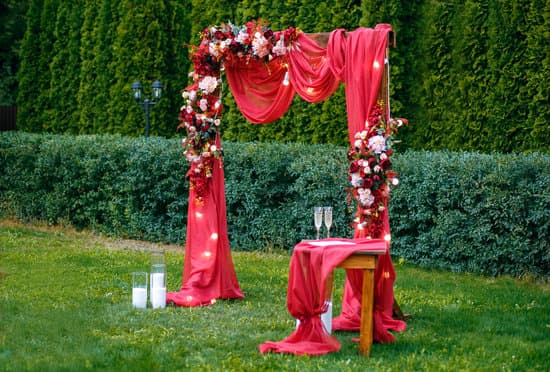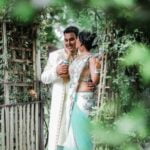How long is a Vietnamese wedding? Vietnamese weddings are steeped in rich traditions and customs that have been passed down for generations. From the engagement process to the wedding day itself, these cultural celebrations can last anywhere from one day to several days, depending on various factors. In this article, we will explore the elaborate rituals and timeline of a traditional Vietnamese wedding, as well as the factors that influence its duration.
Vietnamese weddings are vibrant and colorful ceremonies that reflect the country’s deep-rooted cultural heritage. Understanding the significance and length of these weddings is essential for anyone attending or participating in one. From the engagement process to the wedding day, every step of a Vietnamese wedding is filled with customs that hold deep meaning for the couple and their families.
In this article, we will delve into the various aspects of Vietnamese weddings, including the traditional ceremony, essential rituals and customs, and modern influences on their duration. Whether you’re planning to attend a Vietnamese wedding or simply interested in learning more about this beautiful tradition, we’ll provide insight into how long a Vietnamese wedding typically lasts and offer tips for navigating these celebratory events.
Traditional Vietnamese Wedding Ceremony
The traditional Vietnamese wedding ceremony is a vibrant and meaningful celebration that reflects the rich cultural heritage of the country. This time-honored event typically lasts for an entire day, with various rituals and customs observed throughout the proceedings. One of the most important aspects of a traditional Vietnamese wedding is the emphasis on honoring ancestors and seeking blessings from both families.
The ceremony typically begins in the morning with a procession, where the groom’s family travels to the bride’s house bearing betel leaves, areca nuts, fruits, and other symbolic gifts. This gesture signifies the groom’s family’s respect for the bride’s family and their request for permission to marry. Following this, there may be a formal engagement ceremony known as “dạm ngõ” where both families exchange gifts and discuss details of the upcoming wedding.
After the engagement ceremony, the couple may proceed to a temple or pagoda for a blessing ceremony conducted by a Buddhist monk or Taoist priest. This ritual involves prayers, offerings, and symbolic gestures to seek blessings for the couple’s union. The entire process can take several hours but is an integral part of a traditional Vietnamese wedding, underscoring its spiritual significance in Vietnamese culture.
Overall, the traditional Vietnamese wedding ceremony is a comprehensive affair that spans an entire day due to its focus on adhering to customs and paying respects to ancestors. The intricate rituals and ceremonies involved in each step of the marriage process contribute to making a Vietnamese wedding truly unforgettable.
The Engagement Process and Its Duration
The engagement process in Vietnamese culture is a significant and meaningful time for the couple and their families. It is a period of preparation and anticipation leading up to the wedding day.
The engagement process typically begins with the groom’s family visiting the bride’s family to officially ask for her hand in marriage. This is followed by an exchange of gifts, including betel leaves, areca nuts, wine, tea, fruits, cakes, and jewelry as a symbol of goodwill and respect.
During this time, the couple is also expected to follow certain customs and traditions to honor their families. They may go through formal rituals such as prayers at their ancestors’ altar, seeking guidance and blessings from their elders, and paying respects to deceased relatives. The duration of the engagement process can vary depending on different factors such as family preferences, cultural norms, and other logistical considerations.
- The engagement process usually lasts for several months
- It can also extend for a year or more depending on the couple’s readiness
- Some couples choose to have a shorter engagement period due to modern influences or practical reasons such as work or study commitments
In addition to these traditional customs and rituals, modern influences have also impacted the length of the engagement process in Vietnamese weddings. For example, some couples may opt for a shorter engagement period due to personal preferences or because they have already been living together before getting engaged. On the other hand, some couples may choose to have a longer engagement period in order to ensure that they are fully prepared for married life.
Ultimately, the duration of the engagement process in a Vietnamese wedding is deeply rooted in tradition and cultural significance. It serves as a time for both families to come together and celebrate the union of two individuals. Understanding and respecting these customs is essential when attending or participating in a Vietnamese wedding.
Timeline of a Vietnamese Wedding Day
A Vietnamese wedding day typically follows a specific timeline that includes various rituals and customs to honor the union of the bride and groom. Here is a breakdown of the traditional timeline for a Vietnamese wedding day:
1. Preparation: The wedding day starts early with the bride and groom preparing for the ceremonies ahead. This includes getting dressed in traditional wedding attire, such as an Ao Dai for the bride and a formal suit for the groom.
2. Tea Ceremony: One of the first rituals of the day is the tea ceremony, where the couple pays respect to their parents and ancestors by serving them tea. This symbolizes gratitude and appreciation for their guidance and support.
3. Procession to the Groom’s House: The groom’s family and friends make their way to the bride’s house to escort her to the groom’s house. This procession is often accompanied by lively music, traditional instruments, and dancing.
4. Exchange of Vows: At the groom’s house, there is an exchange of vows between the bride and groom in front of their families and honored guests.
5. Reception: The day culminates with a reception where guests are treated to a sumptuous feast, entertainment, and heartfelt speeches celebrating the newlyweds.
The duration of a Vietnamese wedding day can vary, but it typically lasts from morning until late in the evening due to its intricate ceremonies and festivities that honor tradition while celebrating love and unity.
Essential Rituals and Customs During the Wedding
Vietnamese weddings are filled with essential rituals and customs that have been passed down through generations. These traditions are deeply ingrained in Vietnamese culture and play a significant role in the wedding ceremony. The following are some of the essential rituals and customs that are commonly practiced during a traditional Vietnamese wedding.
Tea Ceremony
One of the most important rituals during a Vietnamese wedding is the tea ceremony, known as “le rước.” During this ritual, the bride and groom pay their respects to their ancestors by serving them tea. This symbolizes the couple’s gratitude and respect for their ancestors and seeks their blessings for a happy and prosperous marriage.
Exchange of Gifts
Another essential custom in Vietnamese weddings is the exchange of gifts between the families of the bride and groom. The groom’s family presents gifts, known as “danh phụng,” to the bride’s family as a gesture of appreciation for raising their daughter. In return, the bride’s family gives gifts, called “mâm quả,” to show their acceptance of the groom into their family.
Wedding Banquet
The wedding banquet is an integral part of a Vietnamese wedding celebration. It is a time for families and friends to come together to share a meal and celebrate the union of the couple. The banquet often includes traditional dishes such as “phở” (Vietnamese noodle soup) and “bánh mì” (Vietnamese sandwich), along with other regional delicacies.
These essential rituals and customs contribute to making Vietnamese weddings deeply meaningful occasions. Each tradition holds special significance in honoring both the couple’s heritage and their commitment to each other. These beautiful customs continue to be cherished and valued in modern Vietnamese weddings, adding richness and depth to these joyous celebrations.
The Length of Vietnamese Wedding Receptions
At the heart of a Vietnamese wedding is the reception, where family and friends gather to celebrate the union of the newlyweds. The length of a Vietnamese wedding reception can vary depending on several factors, including regional customs, personal preferences, and modern influences. Understanding the duration of these receptions is important for guests and participants to fully enjoy and appreciate this pivotal part of the wedding celebration.
Traditional Length of a Vietnamese Wedding Reception
In traditional Vietnamese culture, wedding receptions typically last for several hours, often spanning into the evening. The length of the reception allows ample time for rituals, ceremonies, feasting, and socializing. Guests are treated to a sumptuous banquet meal, as well as entertainment such as music, performances, and games. The celebratory atmosphere continues well into the night with toasts and well-wishes for the newly married couple.
Variations in Modern Vietnamese Wedding Receptions
Modern Vietnamese weddings may see variations in the length of receptions due to contemporary influences and individual preferences. Some couples may opt for shorter receptions to accommodate their guests’ schedules or to adhere to their own personal vision for their special day.
Others may choose to extend the festivities with additional entertainment or activities to create a memorable experience for everyone involved. Ultimately, the duration of a Vietnamese wedding reception is a reflection of the couple’s wishes and cultural traditions.
Practical Tips for Guests
For guests attending a Vietnamese wedding reception, it is important to be mindful of the potential length of the event when planning their participation. It’s advisable to dress comfortably and be prepared for an extended celebration that may involve various customs and ceremonies throughout the evening. Additionally, guests should be respectful of cultural traditions and participate in activities as appropriate while enjoying this joyous occasion with the newlyweds.
Factors Affecting the Duration of a Vietnamese Wedding
The duration of a Vietnamese wedding can be influenced by a variety of factors, including cultural traditions, family expectations, and personal preferences. One key factor that can affect the length of a Vietnamese wedding is the couple’s adherence to traditional customs and rituals. For those who choose to follow all the customary practices, the wedding may span several days, whereas others may opt for a more streamlined celebration.
Another factor that can impact the duration of a Vietnamese wedding is the size of the guest list. It’s common for Vietnamese weddings to have hundreds of attendees, and accommodating such a large group can naturally extend the length of the festivities. Additionally, in some cases, couples may need to navigate differing expectations from both sides of their families, which could lead to longer ceremonies or multiple celebrations.
Furthermore, the location and venue choice for a Vietnamese wedding can also play a role in determining its duration. For instance, destination weddings or those held in remote locations might require additional time for traveling and accommodation arrangements. Similarly, certain venues may have specific time constraints or logistical considerations that could affect how long a wedding event will last.
| Factors Affecting Duration | Description |
|---|---|
| Adherence to Tradition | The couple’s choice to follow all customary practices can extend the wedding timeline. |
| Size of Guest List | Larger weddings with hundreds of attendees can naturally increase the length of celebrations. |
| Family Expectations | Differing expectations from both sides of their families could lead to longer ceremonies or multiple celebrations. |
| Location and Venue | The venue choice and potential travel considerations could affect how long a wedding event will last. |
Modern Influences on the Length of Vietnamese Weddings
In recent years, modern influences have played a significant role in shaping the length of Vietnamese weddings. With changing lifestyles and societal norms, many couples are opting for shorter wedding ceremonies and receptions. This shift is often attributed to busy work schedules, financial constraints, and a desire for more intimate and personalized celebrations.
One modern influence on the duration of Vietnamese weddings is the trend towards non-traditional venues and formats. Couples are choosing to exchange vows in unconventional locations such as beaches, gardens, or even overseas destinations. These alternative settings often lead to more compact and streamlined ceremonies, resulting in shorter overall wedding durations.
Moreover, technological advancements have also impacted the length of Vietnamese weddings. The use of social media platforms and digital communication has allowed couples to share their special day with a wider audience in real-time. As a result, there is less emphasis on prolonged wedding rituals and more focus on creating memorable moments that can be captured and shared instantly.
Additionally, the increasing acceptance of individualism and personal preferences has led to more diverse wedding customs and practices. Couples are now encouraged to tailor their weddings based on their unique preferences, leading to variations in the duration of wedding events. This shift towards personalization has contributed to a more flexible approach to planning weddings, which can ultimately affect how long a Vietnamese wedding lasts.
Tips for Attending and Participating in a Vietnamese Wedding
Attending and participating in a Vietnamese wedding can be an enriching and memorable experience. However, it’s important to be aware of and respectful towards the cultural traditions and customs that are an integral part of these celebrations. Whether you are a guest or directly involved in the wedding party, here are some tips to ensure that you navigate the event with grace and understanding.
Firstly, it is essential to dress appropriately for a Vietnamese wedding. Traditionally, guests are expected to wear formal attire, with women opting for ao dai, the traditional Vietnamese long dress, and men wearing suits or traditional ao gile. It is advisable to avoid wearing white or black as these colors are often associated with funerals. Additionally, bringing a thoughtful and symbolic gift for the newlyweds is considered a courteous gesture in Vietnamese culture.
Furthermore, as a guest or participant in a Vietnamese wedding, it’s important to familiarize yourself with the various rituals and customs that will take place during the ceremony and reception. From the tea ceremony to the exchanging of gifts, each ritual holds deep cultural significance. Showing respect and attentiveness during these proceedings will not only enrich your experience but also demonstrate your appreciation for Vietnamese traditions.
Lastly, understanding the expected duration of a Vietnamese wedding is crucial. These celebrations can last anywhere from several hours to multiple days depending on various factors such as regional customs, family preferences, and modern influences. Being mindful of this timeline will allow you to plan accordingly and fully immerse yourself in this momentous occasion.
Conclusion
In conclusion, the duration of a Vietnamese wedding holds great significance in reflecting the deep-rooted traditions and cultural values of the Vietnamese people. From the engagement process to the actual wedding day and reception, each stage is marked by meaningful rituals and customs that emphasize the importance of family, respect for ancestors, and harmony in relationships.
Understanding the timeline and length of a Vietnamese wedding provides valuable insight into the rich tapestry of customs that have been passed down through generations.
The traditional Vietnamese wedding ceremony itself may only last a few hours, but the engagement process leading up to the wedding can span several months or even years. This period allows for families to get to know each other, negotiate details of the union, and carry out important customs such as ancestral worship and gift exchanges.
On the wedding day, essential rituals such as paying respects to ancestors, receiving blessings from elders, and honoring parents are all carefully woven into the fabric of the celebration.
However, modern influences are also shaping how long a Vietnamese wedding lasts. The desire for more personalized celebrations, combined with practical considerations such as budget and time constraints, may result in shorter or more condensed ceremonies and receptions. Nonetheless, regardless of its duration, a Vietnamese wedding remains a deeply meaningful occasion that unites families and showcases centuries-old traditions that continue to thrive today.
Frequently Asked Questions
How Long Is Vietnamese Wedding Ceremony?
The length of a Vietnamese wedding ceremony can vary, but it is typically a full-day event. It often starts in the morning with traditional ceremonies and rituals, followed by a banquet in the evening.
What to Expect at a Vietnamese Wedding?
At a Vietnamese wedding, you can expect to witness various customs and traditions that are deeply rooted in the country’s culture. This may include the exchanging of gifts, tea ceremonies, and paying respects to ancestors through elaborate rituals.
What Is the Average Length of a Wedding Ceremony?
The average length of a wedding ceremony can range from several hours for a simple civil ceremony to an entire day for more traditional and culturally rich ceremonies like those found in Vietnamese weddings. The duration often depends on the customs and traditions involved.

I have been involved in marriages for over 20 years helping couples and singles understand more about them.





